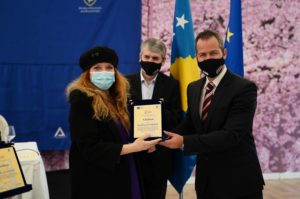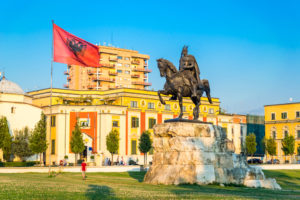
EU Support for the Competitiveness of Kosovo’s ICT Sector
This initiative’s overall objective is to enhance the competitiveness of Kosovo’s digital and traditional businesses by supporting the growth of Kosovo’s Information and Communication Technology (ICT) sector, paving the way for growth and new job creation. The project aims to bridge the digital and business skills gap in

Technical Assistance to Support the Reform on Employment Policies and Vocational Education and Training
This project aims to contribute to implementing the 2019 – 2022 National Employment and Skills Strategy (NESS) action plan of Albania. The implementation of this action plan will help strengthen the capacities of Albania’s Ministry of Finance and Economy and its subordinated institution (National Agency for Employment and

Improvement of Legislation, Control and Awareness in Food Safety, Animal Health and Welfare in Ukraine
The project aims to support the implementation of the Association Agreement’s provisions between the EU and Ukraine concerning food safety, animal health, and welfare.

Technical Assistance Support to the Women’s Breakthrough Project
Over the next century, half the world’s population growth is expected to take place in Africa. It is recognized that one of the continent’s most significant development challenges will be creating enough quality jobs and to employ this population growth. Gender equality, particularly the inclusion and empowerment of

Reinforcement of the National Social Security Fund (NSSF) in Lebanon
In Lebanon, there is no comprehensive national policy to fight poverty and a particular, effective social security system for poor people. Without improvements, Lebanon cannot hope to move towards realistically integrated and adequate social protection interventions. Thus, the project aimed to contribute to improving the quality and coverage

Technical Assistance to Support the Implementation of the Rural Development Sector Development Programme (Phase 1 + 2)
After the positive vote of the Turkish Cypriot community in the 2004 referendum to reunite the island, the European Council decided to end the isolation of the Turkish Cypriot Community and facilitate its integration with the EU. Therefore, the purpose of the project was to improve socio-economic conditions

